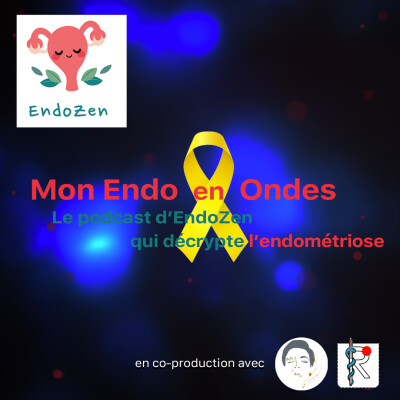First episode of the "Mon Endo en Ondes" series, EndoZen's program on endometriosis, co-produced by EndoZen, Ma Pause à Moi and InfirmieReporteR-.
S01E01: Developmental Origins of Endometriosis (EnDOHAD) with Dr Alexandra Alvergne (CNRS).
In this interview, we'll find out more about Dr. Alvergne's research, which was awarded a prize by the Fondation pour la Recherche Médicale(FRM) on May 24. Hosted by Fleur Four (Ma Pause à Moi) with the participationof Christine Triboulet(EndoZen), Julie-Anna Verdoux(EndoZen) and Laurent Four(InfirmieReporteR-).
Technical resources: Issanka
Developmental Origins of Endometriosis (EnDOHAD) by Dr. Alexandra Alvergne(Source) :
"Endometriosis is a frequent pathology, largely hereditary, but also subject to the influence of the environment: it can be influenced by the age of the first menstrual period or exposure to chemical substances that alter the endocrine system. This heterogeneity makes it a particular challenge to diagnose and treat the disease effectively. New approaches are needed to improve our understanding of the etiology of the disease and our ability to diagnose it.
Recent studies have shown that endometriosis is much more common in women with relatively short ano-genital distances (AGD). GAD, or the distance between the posterior vulvar fork and the anus, is determined between 8 and 14 weeks of prenatal development, by differential growth of perineal tissue, stimulated by testosterone (T). Thus, GAD is strongly correlated with the levels of T to which a fetus is exposed in early pregnancy. The risk of endometriosis would therefore be linked to prenatal T, but also to other, as yet unknown, factors...".
Hosted by Ausha. Visit ausha.co/privacy-policy for more information.



